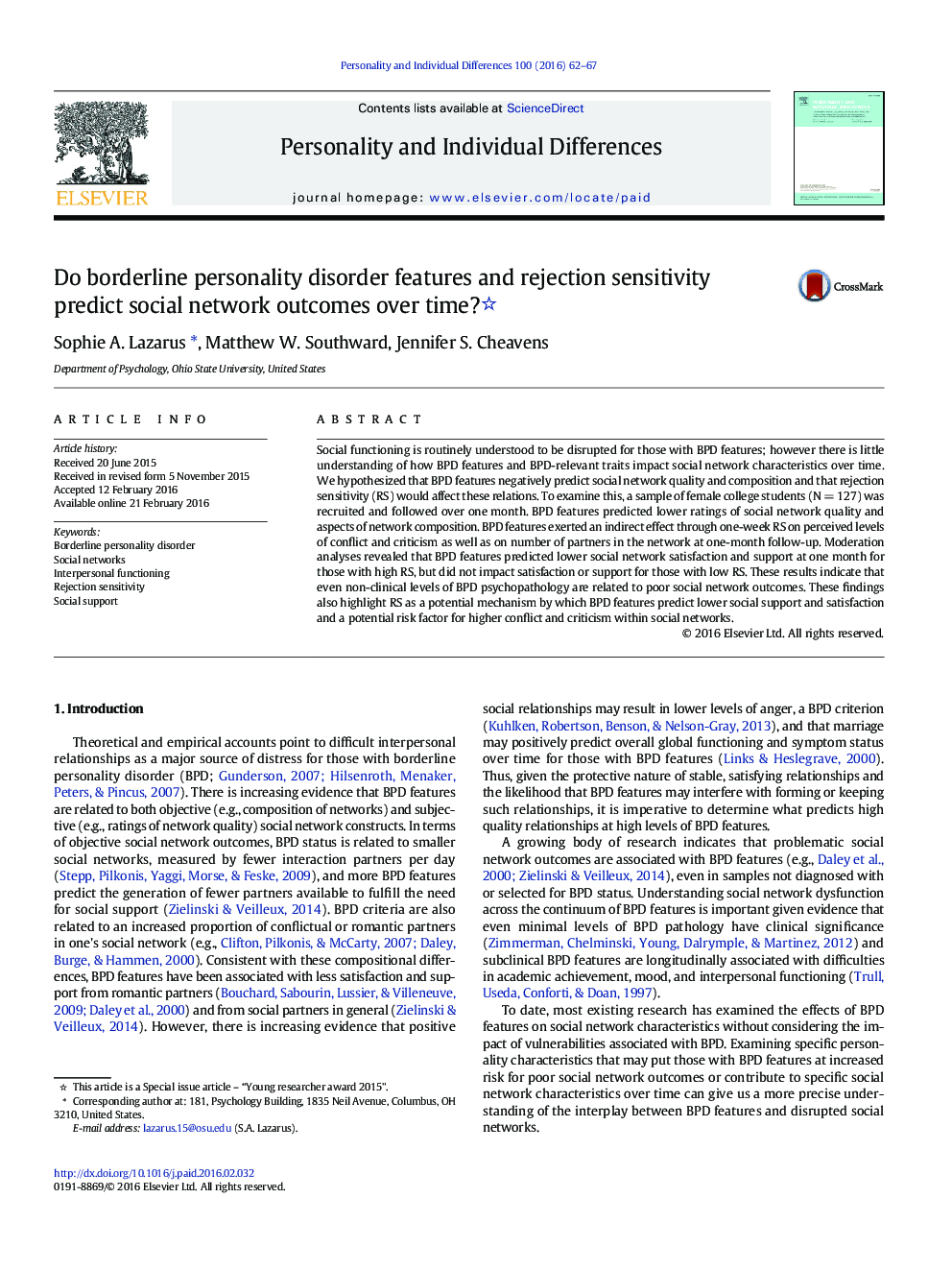| Article ID | Journal | Published Year | Pages | File Type |
|---|---|---|---|---|
| 889626 | Personality and Individual Differences | 2016 | 6 Pages |
•BPD features were negatively related to social network quality one month later.•BPD features predicted aspects of social network composition one month later.•RS functions as both a mediator and a moderator of these relations.•This should be further examined in a clinical sample.
Social functioning is routinely understood to be disrupted for those with BPD features; however there is little understanding of how BPD features and BPD-relevant traits impact social network characteristics over time. We hypothesized that BPD features negatively predict social network quality and composition and that rejection sensitivity (RS) would affect these relations. To examine this, a sample of female college students (N = 127) was recruited and followed over one month. BPD features predicted lower ratings of social network quality and aspects of network composition. BPD features exerted an indirect effect through one-week RS on perceived levels of conflict and criticism as well as on number of partners in the network at one-month follow-up. Moderation analyses revealed that BPD features predicted lower social network satisfaction and support at one month for those with high RS, but did not impact satisfaction or support for those with low RS. These results indicate that even non-clinical levels of BPD psychopathology are related to poor social network outcomes. These findings also highlight RS as a potential mechanism by which BPD features predict lower social support and satisfaction and a potential risk factor for higher conflict and criticism within social networks.
